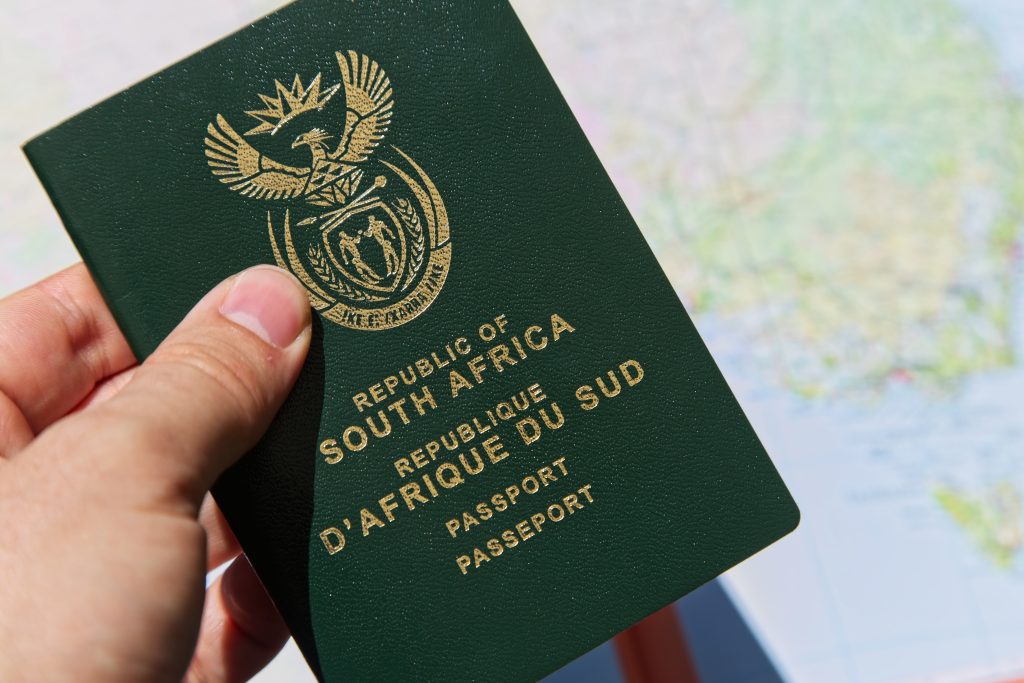Questions to ask before you emigrate – Cashkows
For those who are still in the process of emigrating, or deciding whether or not to ship off and start a new life abroad, there are important questions to ask before making the big move. No two people’s answers will be exactly the same, however, and it’s up to you how you choose to tackle this great move. There are several ways in which you can approach your big move, but only you will be able to decide whether emigration is the right option for you.
The emigration checklist – asking the important questions
Why are you moving?
Firstly (and most importantly), why are you planning on emigrating? It’s the most crucial question to ask before embarking on your new adventure.
Are you afraid for your family – is the crime driving you to new shores? Are you moving in order to give your family a better life – and if so, are you realistic about what you will encounter when moving abroad? Are your expectations of your new country realistic, and will it measure up to the pros you are used to right now? In fact, make sure you draw up a comprehensive pro and con list and compare the two countries and the benefits as well as drawbacks of living in each.
Which country will you move to?
Once you’ve decided to move abroad, the second question (of course), is where you want to ship off to? Do you have family and friends waiting for you on foreign shores? Do you already have an idea of a new home in your head? Are you already sure where you will fit in? Although many people decide on a place to move to before choosing to emigrate, quite a few people aren’t sure yet which country will suit them best.
If you aren’t sure yet, do proper research. Take a look at the schools, churches, shopping centres, the language and the culture. Join some expat forums on the web to gauge their opinions – this will help you make the right decision.
Will you qualify for immigration?
It’s important you check the visa and immigration rules before quitting that job and upsetting the entire family. Thing is, you need to consider your age, your qualifications, your health and that of your family – do you already have a job lined up? Is someone sponsoring your move? Do you have family you plan on bringing over at a later stage – if so, will they qualify for immigration to your new country? Many people don’t consider the rules and regulations with regards to immigration, so it’s important you consider this before moving.
Is your family emotionally and mentally prepared?
Now that you’ve made up your mind, it’s important you try to gauge, objectively, how your family will fair with your move? Will they cope with the move – will your own stress levels and coping mechanisms assist with this major life change or will you aggravate their problems? Consider the different ways in which each of you cope with change and how you react to each other’s stress and trauma. Some people want to fix things, some want to talk, some want to run away, some become obsessive and compulsive in an attempt to manage the situation, and others become aggressive or apathetic. Thing is, as each of you will be dealing with the situation in your own way, you will need to plan ahead and prepare yourself and those around you. It’s a good idea to enlist the help of a therapist, at least for the short term, to assist you with the big move.
Will your loved ones staying behind cope with the loss?
Have you considered the impact of your move on those friends and family members left behind?
You need to consider that there may be a lot of hate, sorrow or resentment. Some friends may even sever their connection with you indefinitely. Though your move may be the best thing for you, your loved ones may feel abandoned or rejected.
Consequently, during your move abroad and after, you may be burdened with the additional stress of trying to manage a broken relationship. You need to consider how you will do that and whether these relationships are worth it. If they are worth it, remember to schedule in daily/weekly time to communicate, interact and catch up in order to keep the relationship alive and healthy.
Will you ship your possessions or buy new?
One of the questions asked most frequently on expat forums is whether or not to ship your possessions abroad or buy new things when reaching your new home?
Though packing and shipping may seem like an enormous task, things may cost you an arm and a leg when you reach new shores. Research the cost of appliances and furniture before deciding to sell all your belongings in South Africa. Also consider whether you can rely on the charity of people in your new home to pull you through. It may not be something you want to do, but many new immigrants rely on temporary/loan furniture and appliances during the first few months living abroad.
Are you renting or buying?
The same rule applies for accommodation that applies for your furniture and appliances – research, research, research. There may be several factors pushing you out of South Africa, but the fact remains that South Africans are, in actual fact, used to a far lower cost of living than other countries. Accommodation, for instance, is something which costs much less and is more readily available than other countries (for instance, New Zealand, Australia, and the UK).
You may have to consider moving to a much smaller home, or have to rent instead of buying. These are, of course, totally feasible options – but make sure to walk into your new environment with your eyes open.
What will happen to your pets?
Ah, to some of us they are very much our ‘second’ children. We’re talking about your pets of course.
Now you’ve decided to emigrate, have you considered what will happen to your pets once you move? The first thing you need to ask yourself is whether you want them to stay or whether you want them to go with.
If you want them to stay, do you already have a new home for them? Will they be safe? Will they be rehomed in time? Of course you don’t want to abandon them without a home, so be sure to make a plan for your furry friends before it’s too late. If you want to take them with, you need to ask yourself whether they will be allowed in the first place – remember that there are certain breeds and types of animals which are prohibited in other countries.
If your pet is allowed to make the move, make sure you have money available and that you have followed the correct route for their emigration.
Do you plan on staying, moving again or returning to South Africa?
For many people, emigration is a temporary thing – they want to see the world, make some money, and move on again when the time is right.
Your decisions and methodology for planning your move depends greatly on whether or not your move is a temporary, long-term or short-term thing. This will affect the way in which you manage your financial affairs in particular. Consider, for instance, whether you need to transfer your pension fund or apply for financial emigration. Do you need to sell your home, transfer your policies or transfer ownership on your policies? Think about it before you act and consider which options best suit you in the long term.
Are you financially stable enough to pull through the initial financial drawbacks?
Emigration is a costly affair, no doubt about that. We’ve already discussed your pets, possessions and accommodation – so ask yourself whether you will be able to live on the minimum for a while as you sort your life out?
Will you be able to manage on less? Do you have people who can assist you during your first year or two, or do you have a ‘piggy bank’ you can draw on to fund you for the interim? These are all important questions to ask before you move once and for all
Are your finances in South Africa sorted?
South Africans who are planning on moving abroad or who have already emigrated aren’t always too concerned with their finances back home. But there are important things to consider when moving abroad. For instance – did you know that you are not allowed to use a South African credit card if you have relocated abroad (and that your bank will probably not tell you about it)?
Did you know that you could benefit from Double Taxation Agreements or pension incentive schemes when moving to your new home (yes, you may get money back!)? Are you aware of your annual transfer allowances? Have you got a clean tax record? Have you opened a new bank account abroad? Do you need to apply for financial emigration?
All important questions to ask – and ones cashkows.com can help you with!
Are you prepared for the cultural and linguistic changes?
Irrespective of where you move to, your new country will not be like South Africa. First off, unless you are relocating within Southern Africa, chances are people will not be speaking your home or secondary language.
In addition to this, your culture will differ greatly from what you are currently used to. There will be different ways of doing things – people will have different ways of preparing meals, socialising, participating in sporting or religious events, rearing their children and interacting in general. Be open to this change and do as much research about your new home as possible. Immerse yourself in the culture and practice and enjoy the new experience. The hardest part of change is accepting our own anxieties and stepping out of our own comfort zones. You will not enjoy the process and will only make it harder for yourself and your family to adapt in the long run. If you struggle with a certain aspect of the culture or language, face it head on and try to think of ways to get around the problem. This does not, of course, mean you need to comply if something makes you too uncomfortable. We all have our non-negotiables – just make sure yours are in place for legitimate reasons and not just due to habit.
There you go – some of the more important questions you need to ask before moving abroad. We hope your new life is an incredible adventure.
Share on
Latest articles




















